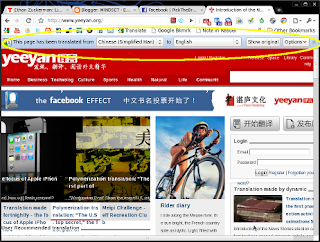eDGING gOD oUT
The ego is not your real self it is the image that you have slowly built over time. It is the mask behind which you hide but not the real you.
Behind the curtain of your intellect and emotions is your self-image or ego. The ego is not your real self; it is the image of yourself that you have slowly built over time. It is the mask behind which you hide, but not the real you. It is a fraud, who lives in fear. It wants approval. It needs control. And it follows you wherever you go.
There is a beautiful poem by the Indian poet Rabindranath Tagore, who is speaking to God:
Behind the curtain of your intellect and emotions is your self-image or ego. The ego is not your real self; it is the image of yourself that you have slowly built over time. It is the mask behind which you hide, but not the real you. It is a fraud, who lives in fear. It wants approval. It needs control. And it follows you wherever you go.
There is a beautiful poem by the Indian poet Rabindranath Tagore, who is speaking to God:
"I came out alone on my way to my tryst.
But who is this that follows me in the silent dark?
I move aside to avoid his presence, but I escape him not.
He makes the dust rise from the earth with his swagger;
he adds his loud voice to every word that I utter.
He is my own little self, my Lord; he knows no shame.
But I am ashamed to come to this door in his company।"
I move aside to avoid his presence, but I escape him not.
He makes the dust rise from the earth with his swagger;
he adds his loud voice to every word that I utter.
He is my own little self, my Lord; he knows no shame.
But I am ashamed to come to this door in his company।"
In this Satsang, recorded in January 2004, Premananda unfolds the workings of the ego or false self using the metaphor of the Fortress. How we build up our ego brick by brick, how we defend it against our enemies and invite in our friends, those who agree with our `story.´
English with German translation
The ego is the prison you have built around yourself, and now it holds you captive within its walls. How do you know this has happened? You have to know that any time you feel discomfort in your body, your ego, which is e-g-o or edging-god-out, is overshadowing your inner self. Fear, doubt, worry, and concern are some of the energies associated with your ego.
So what do you do? The best way to dissipate these energies is to feel your body. Just feel the localised sensations in your body, and keep feeling them until they begin to dissipate.
And how do you break free from captivity? You break free by choosing to identify with your inner self, the real you. You break free from the prison of conditioning when you feel neither beneath anyone nor superior to anyone, when you shed the need to control other people, when you create space for others to be who they are and for your real self to be what it is.
You break free when you no longer defend your point of view, when you no longer use stereotypes or harbour extreme likes or dislikes toward people you hardly know. You break free when you refuse to follow the impulses of anger and fear, when you act from humility rather than belligerence, when you tread gently rather than with a swagger, when your speech is nurturing rather than scathing, when you choose to express only your love.

Comments
Post a Comment